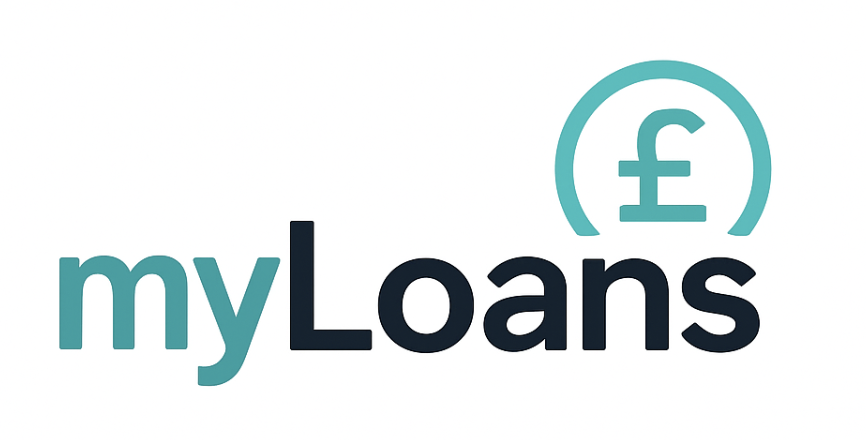Buying a car is one of the biggest financial decisions most people make outside of purchasing a home. For many, paying outright isn’t possible, which makes car finance or a car loan an essential option. Whether you’re asking “can I get car finance?” or searching for the “best car loan comparison UK”, understanding how the process works is key to making the right decision.
This guide covers everything from how to get a vehicle loan, the average APR rate for car loans, and the different types of car finance, to using calculators to work out repayments.
What Is Car Finance?
Car finance allows you to spread the cost of a car over a set period rather than paying the full amount upfront. Depending on the agreement, you’ll make monthly payments until the loan is repaid or the finance term ends.
There are several common types of car finance loans in the UK:
-
Personal Contract Purchase (PCP)
-
Hire Purchase (HP)
-
Personal loans (car loans)
-
Lease agreements
Each comes with different pros, cons, and eligibility requirements.
How to Get a Car Loan or Vehicle Finance
The process of applying for car finance usually involves:
-
Checking your credit score – This affects whether you’ll be approved and what APR rate you’ll receive.
-
Using a car finance calculator UK to estimate monthly repayments.
-
Comparing lenders – banks, credit unions, specialist car finance companies, and dealers.
-
Submitting an application – either online, through your bank, or directly at the dealership.
-
Providing documents – such as proof of income, address, and ID.
If you’re asking “how can I get a car loan with bad credit?”, some lenders specialise in bad credit car finance, but interest rates are usually higher.
See MoneyHelper – Car Finance for impartial guidance.
How Much Is a Car Loan?
The cost of a car loan depends on:
-
The amount borrowed
-
The loan term (typically 2–7 years)
-
Your credit rating
-
The APR offered by the lender
For example:
-
Borrowing £10,000 over 5 years at 8% APR would cost about £202 per month, with total repayment around £12,120.
You can use tools like a car loan calculator UK or car payment calculator to get personalised estimates.
What Is the Average APR Rate for a Car Loan?
APR (Annual Percentage Rate) represents the cost of borrowing, including interest and fees.
-
For good credit borrowers, the average APR rate for car loans in the UK is typically 6–9%.
-
For bad credit borrowers, rates can be 20%+, depending on the lender.
Always compare offers using a car loan comparison UK service before committing.
Types of Car Finance Explained
1. Personal Contract Purchase (PCP)
-
Lower monthly payments compared to HP
-
At the end, you can either return the car, pay a final “balloon payment” to own it, or trade in for a new car
-
Flexible but can be expensive if you exceed mileage limits
2. Hire Purchase (HP)
-
Pay monthly instalments until the full value of the car is covered
-
At the end, you automatically own the vehicle
-
Usually higher monthly payments than PCP
3. Personal Loan (Car Loan)
-
Borrow a fixed sum from a bank, credit union, or online lender
-
Own the car immediately
-
Often cheaper APR rates than dealer finance, especially if you have a strong credit score
4. Leasing
-
Pay monthly to use the car, but you never own it
-
Often includes servicing and maintenance
-
Suitable for those who prefer changing cars regularly
For a full breakdown, see Which? Car Finance Guide.
Car Loan vs Car Finance: What’s the Difference?
-
Car loan – You borrow money separately from a bank or lender and buy the car outright. You own the car from day one.
-
Car finance (PCP or HP) – You pay the lender or dealer directly through instalments, often without owning the car until the final payment.
A car loan comparison is usually better if you want ownership straight away, while dealer finance may suit those wanting flexibility.
Tesco Car Finance and Other UK Providers
Big names like Tesco Car Finance, Barclays, and Santander offer competitive car loan rates. Supermarket lenders like Tesco may also offer fixed-rate Tesco car loans that you repay over 1–7 years.
Always compare providers using platforms such as:
Car Finance Calculators
A car finance calculator UK or car mortgage calculator helps you work out:
-
Monthly payments
-
Total repayment cost
-
Interest charges
Some useful tools include:
These calculators are essential if you’re asking “how much car finance can I get?” or “how much to finance a car in the UK?”.
How Much Car Finance Can I Get?
Lenders assess:
-
Your income and employment status
-
Credit history
-
Existing debts
-
The car’s value
There’s no fixed maximum, but most lenders offer between £3,000 and £25,000. Some specialist lenders go higher.
Comparing Car Finance Options
When doing a car finance comparison, consider:
-
APR (total cost of borrowing)
-
Loan term length
-
Fees and charges
-
Ownership terms (do you own the car at the end?)
-
Flexibility (early repayment, mileage limits)
Sites like Confused.com Car Finance Comparison can help you compare offers.
Bad Credit Car Loans
If your credit history isn’t perfect, you may still qualify for bad credit car finance UK. Some lenders advertise instant approval car finance or no credit check car finance, but be cautious. These usually come with:
-
Higher APR rates
-
Stricter repayment terms
-
Risk of repossession if you miss payments
Improving your credit score before applying can save you thousands in the long run.
FAQs
Can I get car finance if I’m self-employed?
Yes, but you may need to provide more evidence of income such as tax returns or bank statements.
Is car finance the same as a car loan?
Not exactly. Car loans give you ownership immediately, while finance often means you don’t own the car until the agreement ends.
What is a car note?
In the UK, a car note refers to the repayment amount on a car finance or car loan agreement.
Can I repay my car loan early?
Yes, many lenders allow early repayment, but check for early settlement fees.
How do I know if I’ll get approved?
Lenders check your credit score, affordability, and sometimes your employment history. Some offer car finance eligibility checkers online.
Conclusion
Whether you’re asking “how do I get a car loan?” or searching for cheap car finance UK, understanding the options is vital.
-
Use a car finance calculator UK to estimate costs.
-
Compare car loan offers across multiple lenders.
-
Decide whether you want to own the car outright (loan) or prefer flexible finance options (PCP, HP, lease).
-
Always check the APR rate for car loans and repayment terms before signing.
By taking the time to compare, calculate, and consider your options, you’ll be better equipped to find the best car finance deal in the UK.
How to Use a Car Finance Calculator: A Guide
How to Use a Car Finance CalculatorCar finance calculators are online tools that help you estimate your monthly car finance payments. By inputting basic information such as the loan amount, interest rate, and agreement length, you can get a clear picture of what you...
The Importance of PCP Quotes: A Guide
Understanding the Importance of PCP QuotesWhen you’re in the market for a new car, understanding your financing options is crucial. One of the most popular methods for financing a car in the UK is through a Personal Contract Purchase, commonly known as PCP. This...
Tips for Securing Your First Car Loan
Car Finance for Young Drivers in the UK: A Complete GuideBuying your first car is a major milestone, but for many young drivers, paying the full price upfront isn’t realistic. That’s where car finance for under 21s comes in. Whether you’re 17, 18, 19, or 21, there are...
Benefits of Using a Car Finance Calculator
Car Finance in the UK: How to Get the Best DealCar finance is one of the most popular ways to buy a vehicle in the UK, whether you are purchasing a brand-new car or a used one. With so many finance options available, it can be overwhelming to know where to start....





